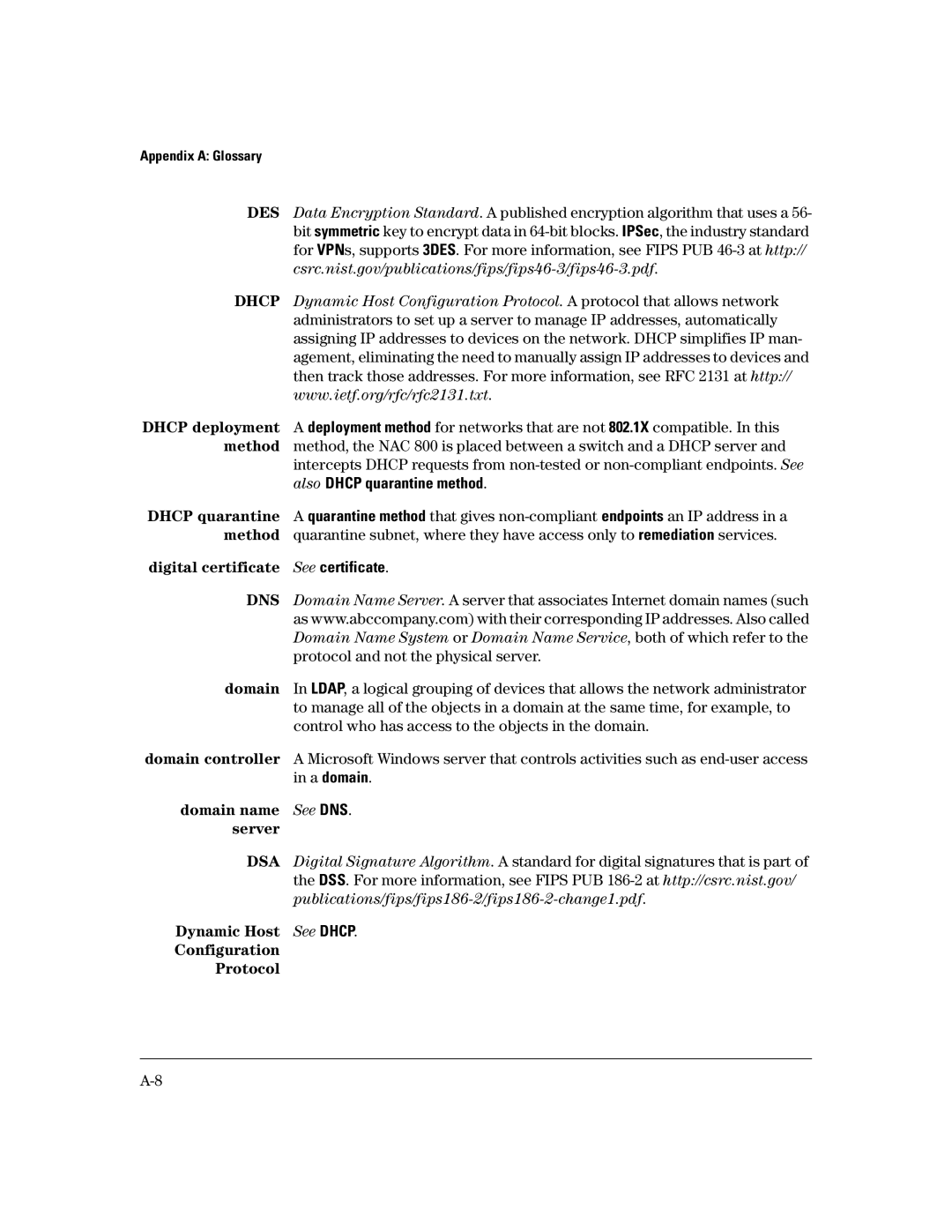Appendix A: Glossary
DES Data Encryption Standard. A published encryption algorithm that uses a 56- bit symmetric key to encrypt data in
DHCP Dynamic Host Configuration Protocol. A protocol that allows network administrators to set up a server to manage IP addresses, automatically assigning IP addresses to devices on the network. DHCP simplifies IP man- agement, eliminating the need to manually assign IP addresses to devices and then track those addresses. For more information, see RFC 2131 at http:// www.ietf.org/rfc/rfc2131.txt.
DHCP deployment A deployment method for networks that are not 802.1X compatible. In this method method, the NAC 800 is placed between a switch and a DHCP server and
intercepts DHCP requests from
DHCP quarantine A quarantine method that gives
digital certificate See certificate.
DNS Domain Name Server. A server that associates Internet domain names (such as www.abccompany.com) with their corresponding IP addresses. Also called Domain Name System or Domain Name Service, both of which refer to the protocol and not the physical server.
domain In LDAP, a logical grouping of devices that allows the network administrator to manage all of the objects in a domain at the same time, for example, to control who has access to the objects in the domain.
domain controller A Microsoft Windows server that controls activities such as
domain name See DNS. server
DSA Digital Signature Algorithm. A standard for digital signatures that is part of the DSS. For more information, see FIPS PUB
Dynamic Host See DHCP.
Configuration
Protocol
